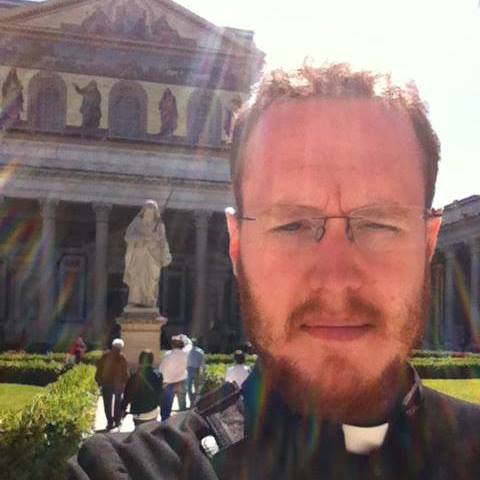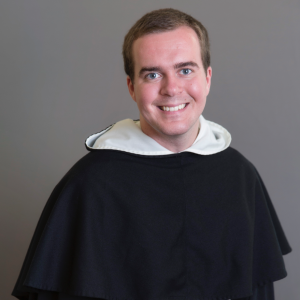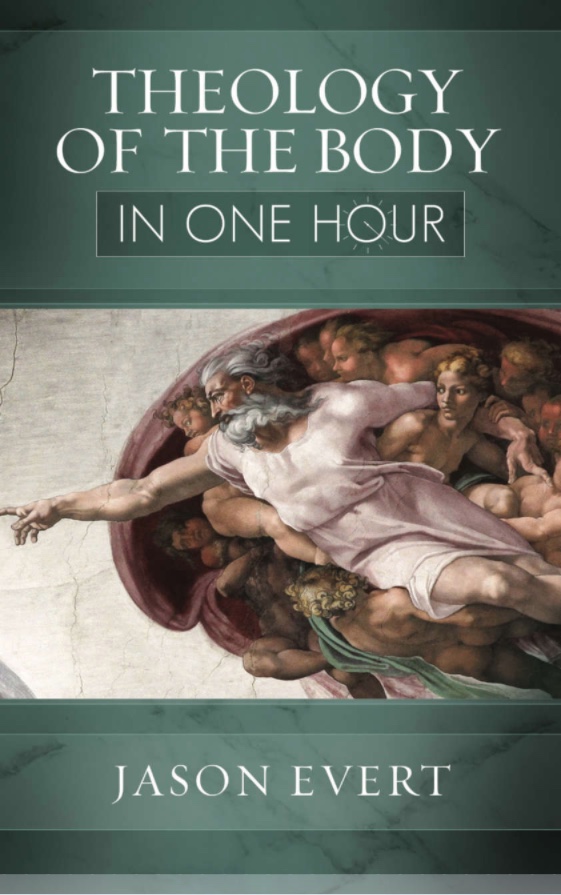
– “Sloth (Desidia), from the series The Seven Deadly Sins, Pieter van der Heyden (Netherlandish, ca. 1525–1569), after Pieter Bruegel the Elder (Netherlandish, Breda (?) ca. 1525–1569 Brussels), publisher: Hieronymus Cock (Netherlandish, Antwerp ca. 1510–1570 Antwerp), 1558, engraving, 8 15/16 x 11 5/8 in. (22.7 x 29.6 cm), The Metropolitan Museum of Art, NYC, NY. Please click on the image for greater detail.
Representing the vice of sloth, this image belongs to a series of prints of the Seven Deadly Sins, engraved by Pieter van der Heyden after drawings by Pieter Bruegel the Elder. The personification of sloth, a shabbily dressed woman, demonstratively sleeps away the time in the central foreground, resting her weight on the back of an ass. The various examples of lazy or slothful behavior, in evidence in the surrounding landscape, colorfully demonstrate the message of the inscription below: “Sloth makes man powerless and dries out the nerves until man is good for nothing.” Each of the seven prints follows a similar compositional scheme, with the personification of the vice accompanied by a symbolic animal in the foreground. Bruegel also adopted a common setting and “look” for the series by depicting each scene in the style of Hieronymus Bosch, to whom Bruegel was often compared. Sloth features an assortment of fantastic creatures and a confused arrangement of hybrid structures reminiscent of Bosch’s work. This reminiscent style, employed consciously by Bruegel, contrasts sharply with the way he depicted The Seven Virtues, a series of prints executed in the following years—all of them set in an accurate version of Bruegel’s contemporary world.
The Deadly Sins are listed by St. Thomas (I-II: 84:4) as:
(Saint Bonaventure (Brevil., III, ix) lists the same. The number seven was given by Saint Gregory the Great (Lib. mor. in Job.) XXXI, xvii), and held for most of the Middle Age theologists. Previous authors listed 8 Deadly Sins: Saint Cyprian (mort., iv); Cassian (instit caenob., v, coll. 5, de octo principalibus vitiis); Columbanus (“Instr. de octo vitiis princip.”in”library. Max. vet. Patr. “(, XII, 23);” Alcuin (virtut et vitiis, xxvii and ff.))
Sin of omission
“A sin of omission is committed when a person has a duty to do something but doesn’t do it. If a Catholic skips Sunday Mass out of laziness, that is a sin of omission (a serious one). If you saw a person drowning in a river and didn’t throw a rope to him, that too would be a serious sin of omission. Jesus was very clear about what awaits people who are guilty of serious omissions (see Matthew 25:41-46).
“Then He will say to those on His left, ‘Depart from Me, you accursed, into the eternal fire prepared for the devil and his angels. For I was hungry and you gave Me no food, I was thirsty and you gave Me no drink, a stranger and you gave Me no welcome, naked and you gave Me no clothing, ill and in prison, and you did not care for Me.’ Then they will answer and say, ‘Lord, when did we see You hungry or thirsty or a stranger or naked or ill or in prison, and not minister to Your needs?’ He will answer them, ‘Amen, I say to you, what you did not do for one of these least ones, you did not do for Me.’ And these will go off to eternal punishment, but the righteous to eternal life.”
There are certain things we are morally required to do, either because of our state in life (we are baptized Catholics, for instance) or simply because we are human and we have an obligation to show basic charity and respect for the life and property of others.
Now, when you see something that is good but not obligatory, and you don’t follow through and do the good act, that is an imperfection. Fr. Jordan Aumann, OP, in his book Spiritual Theology defined imperfection as “the omission of a good act that is not of obligation or the remiss performance of an act, that is, with less perfection than that of which one is capable.”
Father Aumann goes on to note that “we should not demand perfection in each and every human action, but should take into account the weakness of our human condition. The most that can be demanded is that individuals do the best they can under the circumstances and then leave the rest to God.”
Two points are worth mentioning here. First, by all means, keep working to overcome imperfections in your life. “In the Church, everyone whether belonging to the hierarchy, or being cared for by it, is called to holiness” (Lumen Gentium, 39).
Second, don’t get discouraged if you continue to see imperfections in yourself. We are all human and therefore limited and imperfect. And being aware of our shortcomings can help motivate us to stay close to Our Lord in prayer, the sacraments and acts of charity.”

-by Leon J. Suprenant, Catholic Answers
“When many of us think of sloth, we probably conjure up images of an ugly South American animal that eats shoots and actually hangs around. Or maybe we think of unshaven Joe Sixpack lying on the sofa all weekend, not lifting a finger except to open another cold one.
The latter is a fairly apt image of the vice of sloth or its synonyms such as boredom, acedia, and laziness. Boredom refers to a certain emptiness of soul or lack of passion; acedia refers to the sadness that comes from our unwillingness to tackle the difficulties involved in attaining something good; laziness more generally refers to the torpor and idleness of one who is not inclined to exert himself.
Sloth encompasses all these ideas and more. In his Pocket Catholic Dictionary, the late Jesuit Fr. John Hardon, SJ defined sloth as “sluggishness of soul or boredom because of the exertion necessary for the performance of a good work. The good work may be a corporal task, such as walking; or a mental exercise, such as writing; or a spiritual duty, such as prayer.”
One might have the impression that sloth is not a typically American sin. The virtues of diligence and industriousness are deeply ingrained in our nation’s Protestant work ethic. Our youth learn early on that the way to get ahead—at least for those who don’t win the lottery—is by working hard. The early bird catches the worm. Early to bed, early to rise. In a competitive, dog-eat-dog business world, everyone is looking for an “edge,” and that typically comes from outworking the competition.
And even apart from an employment context, when we want to communicate that our lives have been normal and healthy, we report that we’ve been “keeping busy.”
Surely the Church has always championed the intrinsic goodness of human work, through which we become “co-creators” with God and exercise legitimate stewardship over creation. In his 1981 encyclical letter on human work (Laborem Exercens), Pope John Paul II writes: “Work is a good thing for man—a good thing for his humanity—because through work man not only transforms nature, adapting it to his own needs, but he also achieves fulfillment as a human being and indeed, in a sense, becomes ‘more a human being’” (9).
Mightier than the Minotaur
Yet sloth is a sin against God, and not against the time clock or productivity. The fact is that it’s possible to work too much, in a way that’s not in keeping with our dignity and ultimate good. The essence of sloth is a failure to fulfill one’s basic duties. Surely one such duty is the human vocation to work. Yet another such duty is the enjoyment of leisure, to take time for worship. The gentleman lying on the sofa may be a more popular image of sloth, but the workaholic, who’s on the job 24-7 and in the process neglects God and family, is the more typical manifestation of sloth in our culture.
Russian author Aleksandr Solzhenitsyn put it this way:
In the United States the difficulties are not a Minotaur or dragon—not imprisonment, hard labor, death, government harassment, and censorship—but cupidity, boredom, sloppiness, indifference. Not the acts of a mighty, all-pervading, repressive government, but the failure of a listless public to make use of the freedom that is its birthright. (qtd. in William J. Bennett, “Redeeming Our Time,” Imprimis, November 1995)
Work and leisure are both products of human freedom, and both are intimately tied to our ultimate good. Most of us understand and periodically struggle with the natural aversion to work, but why do we find it so difficult to enjoy leisure? Why do we consign ourselves to joyless workaholism instead of striking a healthy balance in our lives? There are many reasons for this strange phenomenon, but I’d like to point out a few contributing factors that reflect the spiritual malaise of our time.
First, Pope John Paul II, in his 1995 encyclical on the Gospel of Life (Evangelium Vitae), identified “the heart of the tragedy being experienced by modern man: the eclipse of the sense of God and of man” (21). He noted that “when the sense of God is lost, there is also a tendency to lose the sense of man, of his dignity and his life” (21). The Holy Father was speaking to us: We in the west have largely lost the sense of God, leading to a loss of our own sense of purpose or mission. This has inexorably led to the societal emptiness and lack of passion that Solzhenitsyn saw so clearly decades ago. A striking correlation exists between the rise of secular atheism and boredom, as the reduction of human existence to the merely material divests it of its intended richness and meaning. This can only lead to the worldly sadness that leads to despair and ultimately death (cf. 2 Cor. 7:10).
Amusing Ourselves to Death
The most typical way of dealing with this tragedy is by not dealing with it, so as a society we tend to flock to entertainments. Certainly, these things are not bad in themselves, but excessive recourse to them reveals a flight from the depths of the human condition to the comfort of shallow pastimes. These pursuits are rightly called diversions, because they divert us from facing a life from which the living God has been excluded. For some, these diversions may be sports, television, or the Internet, among other possibilities. For others, work becomes a diversion, an escape. When it does, it ceases to be a manifestation of virtue and instead feeds the vice of sloth.
In addition, modern man tends to define himself by what he does and what he has. Yet, leisure isn’t about producing and owning, but about being—in other words, resting in God’s presence. We often fail to recognize the immense God-given dignity and value we have simply by being who we are, which is prior to anything we might accomplish in life. In Augustinian terms, without allowing for leisure, our hearts are forever restless, and our sense of worth gets tied to what we’re able to produce. This utilitarian mindset not only drives us to overwork but it also negatively affects how we value others. That’s one reason why our society has such a difficult time valuing the elderly and the infirm in our midst.
Further, as the pursuit of success, acclaim, or riches becomes the source of our personal worth, these human goods in essence take the place of God in our lives. Few of us probably set out to become idolaters, but that’s what we’ve become if our choices and work habits are ordered toward serving mammon, not God (Matt. 6:24; CCC 2113).
In response to all this, I offer a three-part plan for battling and overcoming the vice of sloth.
1: Remember to keep holy the Lord’s Day.
I recently had the occasion to reread Pope John Paul II’s magnificent 1998 apostolic letter Dies Domini, on keeping the Lord’s Day holy. It’s hard to single out “favorites” from among John Paul’s voluminous writings, but surely this meditation on the Lord’s Day will benefit Christians “with ears to hear” for many generations to come.
I heartily recommend this apostolic letter as spiritual reading. Perhaps we can even give up an hour or so of sports (.asp) this Sunday to soak in some of the Holy Father’s insights as to what Sunday is all about in the first place.
One passage of Dies Domini really struck me: “[The Sabbath is] rooted in the depths of God’s plan. This is why, unlike many other precepts, it is not set within the context of strictly cultic stipulations but within the Decalogue, the ‘ten words’ which represents the very pillars of the moral life inscribed on the human heart” (DD 13).
Sunday Mass is not simply another requirement imposed on us by a Church that’s obsessed with “rules.” Rather, the obligation to remember to keep the day holy is prefigured and rooted in the commandment to keep the Sabbath day holy, which in turn is rooted in the very act of creation. And by creation I mean both God’s creation of the world, from which he took his rest on the seventh day, and God’s creation of us. This call to worship, to rest from servile labor, to take stock of all that God has given us, is inscribed in who we are, and we are acting against our own good when we fail to remember to keep Sunday holy. As our Lord noted, the Sabbath is made for man, and not the other way around.
On top of all that, we are commanded to “remember” to keep the day holy, which suggests that we might tend to “forget.”
When it comes to tithing our money, assuming that we even make an effort to support the Church financially, we look for the minimum we can get by with. Nobody ever says, “Is it okay to give more than 10 percent?” or tries to imitate the widow in the Gospel (Luke 21:1-4). Instead, we tend to give a mere pittance of what we’re able to give—certainly not enough to affect our overall spending habits. God asks for our first fruits and we give him our spare change.
In a similar sense, God asks us to tithe our time, to give him one day per week. We’ve reduced the Lord’s Day to Sunday Mass, and even then we squawk if it lasts more than 45 minutes. We can’t get out of Church fast enough once we’ve “done our time.”
But as long as we view the Sunday obligation minimally and as a burden, we’re missing the point. While Sunday Mass is the source and summit of our Christian life for the week, the entire Lord’s Day should be set aside for God and family—in other words, for leisure and for freedom from servile labor. Surely there must be some flexibility in application especially given our diverse, secular culture, but I daresay just as we can probably do a better job of tithing our money, we can do a better job of remembering to observe the Lord’s Day.
2: Take stock of our schedule.
Time is one of our most valued commodities, and we should spend it in a way that reflects our values and priorities. Getting the Lord’s Day right is the first and most important step, but we still have six other days to order correctly. Faith, family, work, and other pursuits are like ingredients that need to be added at the right time and in the right measure to make a tasty dish. If we don’t take the time to read and follow the recipe, the ingredients won’t come together in the way we’d like.
That’s why it’s so important for individuals, couples, families, and communities to take the time to identify their priorities and commitments and schedule their days and weeks accordingly. For those of us who tend to be lazy “underachievers,” a schedule will keep us on task to make sure we meet our obligations. For those of us who tend toward workaholism and to be driven by the tyranny of the urgent, a schedule will make sure that we make time for prayer, reading to the kids, or other priorities that might get shoved aside if we’re not vigilant.
3: Cultivate virtue.
If we’re not actively engaged in cultivating virtue, then our lives will start looking like my lawn. There are some patches of grass, but each day there are also more weeds. Overcoming vice and developing virtue go together, just as it’s not enough to pull weeds without also planting and fertilizing the new grass.
When it comes to sloth, the corresponding virtues are justice, charity, and magnanimity. Sloth is about fulfilling our obligations to God and neighbor, which brings into play the various manifestations of justice. However, the motivation for fulfilling these obligations should be supernatural charity, which moves us out of our small, self-serving world so that we might live for others.
When the spiritual laxity of sloth overtakes us, we are like a football team that has lost its momentum. We are set back on our spiritual heels and feel ill-prepared to do what is necessary to turn the tide. From this perspective, we can see how the “end game” of sloth is despair, as eventually the negative momentum snowballs, and we lose the will to compete. Magnanimity, however, literally means being “great-souled”; it is the virtue that gives us the confidence that we can do all things in him who strengthens us (Phil. 4:13), that we can truly run so as to win (1 Cor. 9:24).
Each time we act against our disinclination to pray, as well as work into our day habits of prayer (e.g., saying a Hail Mary when we’re stopped in traffic) and sacrifice, we are replacing sloth with virtues that will help us become saints. And it all starts with getting up off the couch and onto our knees.”
Love & virtue,
Matthew



















